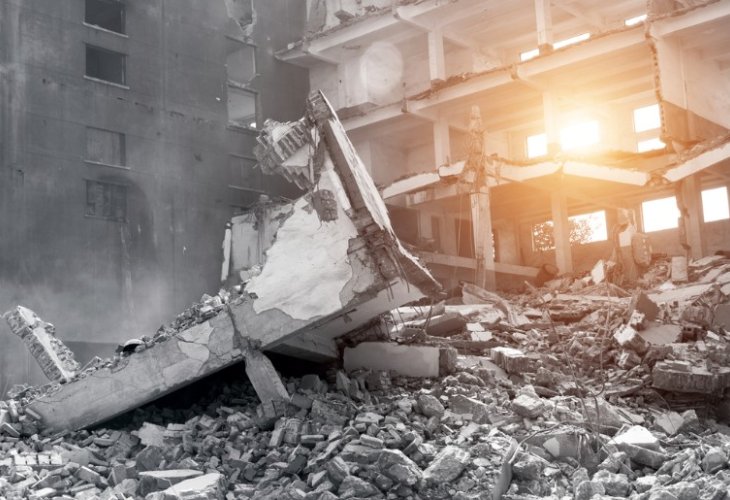Personal Stories
A Shabbat Story: The Rabbi Who Escaped the Rubble with a Promise to Hashem
A story of miraculous survival, great loss, and unwavering dedication to Torah

A powerful, thunderous boom shook the city of Lviv. At first, no one knew what had happened. But within moments, panic swept through the streets. People ran in every direction, buildings were collapsing, and it became clear that something terrible had occurred.
At that time, the rabbi of Lviv was the great Torah scholar Rabbi Yaakov Yehoshua Falk, known throughout the Jewish world by the title of his famous commentary, the Pnei Yehoshua. The events of this day would become deeply tied to that very book.
It was the 3rd of Kislev in the year 5463 (1702). Hidden beneath a tall building in the city were several barrels of gunpowder, a dangerous material even in the best conditions, and completely unsafe to store in secret. That day, a spark, likely caused by friction, ignited one of the barrels. A huge explosion followed, destroying several buildings and taking many lives.
At the time of the explosion, Rabbi Yaakov Yehoshua was teaching Torah to his students. A moment later, he was buried beneath massive piles of stone and wood. Miraculously, although trapped under the rubble, he was uninjured. Still, he knew he couldn’t hold on for long.
Lying beneath the wreckage, he looked upward and turned to Hashem. The words of the Talmud came to his mind: “A person may make a vow in a time of distress.” And so, with all his heart, he prayed.
“Master of the Universe,” he whispered, “if You perform a miracle and save me from this destruction, I promise that I will never hold myself back from the walls of the beit midrash (study hall). I will dedicate myself fully to Torah learning and halachah (Jewish law). I also promise to write a Torah commentary.”
And then, something unbelievable happened. The beams and stones shifted, and a clear path opened up for him to crawl out. He emerged from the ruins alive, having witnessed a great miracle. But the world he stepped into was no longer the one he knew. In that explosion, thirty-six people had died including his mother, his wife, and his young daughter.
To honor their memory and his vow, Rabbi Yaakov Yehoshua studied the entire Talmud thirty-six times, once for each person who perished in the blast, before he began writing his legendary Torah commentary, Pnei Yehoshua.
Here’s another story that shows the lasting power of Rabbi Yaakov Yehoshua’s Torah and spiritual greatness:
Years after his passing, a blind man came to the synagogue in town to pray the Mincha and Maariv services. He arrived an hour early and had time to spare. Wandering near the bookshelf, he ran his fingers across the spines of the books. One felt different, there was something firm beneath the cover.
Curious, he opened the book and discovered an old, hard case tucked inside. Inside the case were a pair of antique eyeglasses. Alone in the quiet synagogue, he tried them on.
To his shock, he could see. Everything was clear.
From that day forward, the blind man wore the glasses but never told anyone their secret. People simply saw a blind man still feeling his way, just now with a pair of glasses on his face.
Before he passed away, he told his sons the truth. They agreed to forgo all other inheritance in exchange for the miraculous glasses. But before they could settle how to divide the belongings, the glasses suddenly slipped from their place, fell to the ground, and shattered.
They broke with barely a sound but their story lives on.

